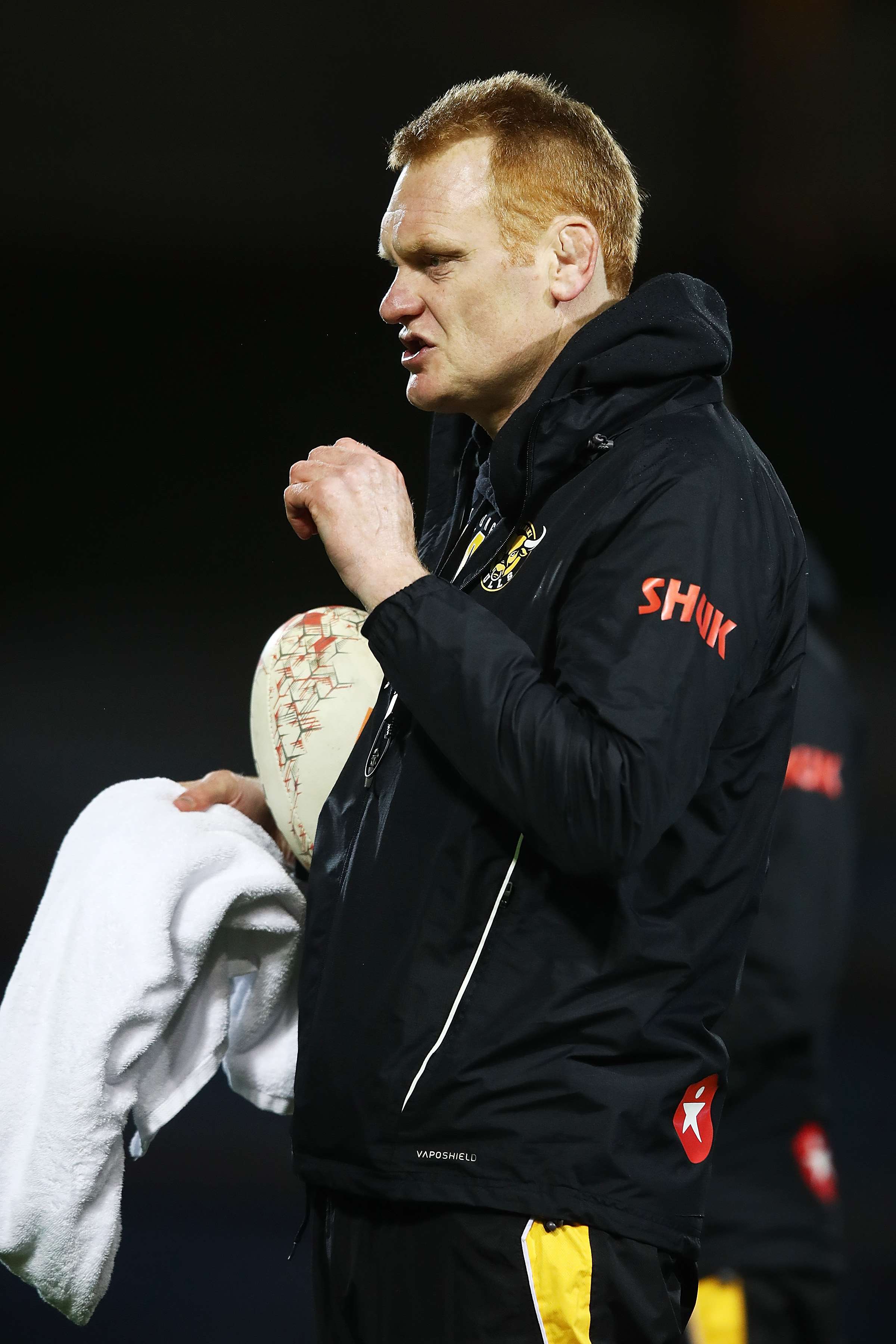Taranaki coaches on the big stage
Friday, Jan 24 2020

Photo: Former Taranaki forwards coach Paul Tito has been snapped up by French club Pau, another New Zealand coach offshore. Getty Images
New All Blacks coach Ian Foster has selected two Taranaki men as his assistant coaches to embark on a new era of New Zealand rugby.
Sports News Taranaki contributor Will Johnston looks at the Taranaki coaches who are involved in topflight rugby around the world. Some have flown under the radar; others have been in the spotlight during their careers.
When you scan the vast list of rugby teams around the world, you can’t help but recognise the number of coaches who are born and bred Taranaki men. This installs a sense of pride as a Taranaki sports fan and I’m sure many will have the same feeling.
The recent coaches who have gained attention at the tail end of last year are Greg Feek and John Plumtree, who will join Foster and other assistant coach Scott McLeod in an exciting All Black era. What is their pedigree?
Let’s start with Feek. A coach who has kept a low profile due to his overseas experience. The prop, educated at New Plymouth Boys High School, notched up 63 matches for the Crusaders but also represented Taranaki first, then Canterbury and Tasman during their inaugural year in 2006. He eventually retired from rugby in 2006 after representing the All Blacks in 10 test matches between 1999 and 2001.
He embarked on his coaching journey in 2008 and started as the forwards coach for the Hurricanes in Super Rugby. Feek was picked up by Leinster as their scrum coach for the 2010/11 season and then started working with the Irish international side in 2014 until the 2019 Rugby World Cup.
Feek was involved in a historic era of Irish rugby, including being in the coaching team when they beat the All Blacks on two occasions in 2016 and 2018.
The former Spotswood United prop will be looking forward to coming back to New Zealand to embark on this new project.
Plumtree’s credentials speak for themselves. He is a coach who has been around for a long time and has earned his spot in the All Blacks coaching set up.
The Hawera-born coach notched up plenty of first class matches for Taranaki, Hawkes Bay and the Sharks but Plumtree is more known for his coaching ability and taking teams to championships. The 54-year-old started with Swansea before moving back to New Zealand involved in Wellington then onto the Sharks, Ireland, the Hurricanes, Japan and now the All Blacks. He is an example of a coach going through various ranks and grades destined to coach the national side himself.
With Plumtree moving into the All Blacks, that promotes fellow Taranaki man Jason Holland into the head role at the Hurricanes.
Holland was educated at New Plymouth Boys High School and, again, has an impressive rugby resume.
First, he represented Manawatu before playing for Taranaki and finished with Munster in 2008. He didn’t return to New Zealand until 2012 where he was the assistant coach for Canterbury in the national provincial championship after serving five seasons as Munster’s assistant.
He then went into the assistant’s role at the Hurricanes in 2015 and was promoted to the top job in December last year.
Let’s look outside of those who are back in New Zealand. John Mitchell has one of the most impressive coaching CVs. However, he had a long career first as a player representing Waikato in 134 matches across a 10-year period.
He immediately coached his club Fraser Tech while still playing for the Mooloos in 1994, then snapped up by Ireland as their forwards coach in 1996. That was the start for Mitchell as his coaching ramped up.
From there, the Francis Douglas Memorial College old boy went onto coach the Sale Sharks in England’s top premiership competition, then as England’s forward coach, Wasps assistant coach, Waikato B, Chiefs, All Blacks, Waikato, Western Force, Golden Lions, Lions, back to Sale Sharks, UKZN (South African University), United States, Bulls and then England.
The coaching list continues with current Bennetton coach Keiran Crowley, another Taranaki product who is coaching overseas.
Let’s not forget his significant playing career with Taranaki, representing the amber and blacks on 200 occasions across a 14-year period. He became a leading points scorer and made a life member of the Taranaki Rugby Football Union in 1993. He also played 19 matches for the All Blacks.
He started coaching Taranaki in 1998 and wound up in 2007, the same year he took the New Zealand U19 side. The U19 side won the Junior World Championships, the first time since 2004 when they were unbeaten in the tournament. Given his good name in coaching, he also served as an All Black selector.
Crowley, who played his club rugby for Kaponga, started coaching Canada in 2008 and lasted until 2016 before moving to Italy. Canada were runners up in the Churchill Cup in 2010 and 2011 and also in the World Rugby Pacific Nations Cup in 2013 under his watch.
In a way, it’s a shame that these talented coaches apply their trade elsewhere. We have seen that some return in more higher roles, but does that mean that the ‘pathway’ for coaches is to gain experience overseas and then come back?
There is no doubt that New Zealand rugby coaches, and players for that matter, have a lot of respect in the overseas market and are snapped up quickly when they gain a reputation. This leaves the other coaches coming through to stamp their mark on domestic rugby before their next move into larger or overseas roles. Not all coaches go overseas, but the opportunities seem to be endless offshore.
Will Johnston

